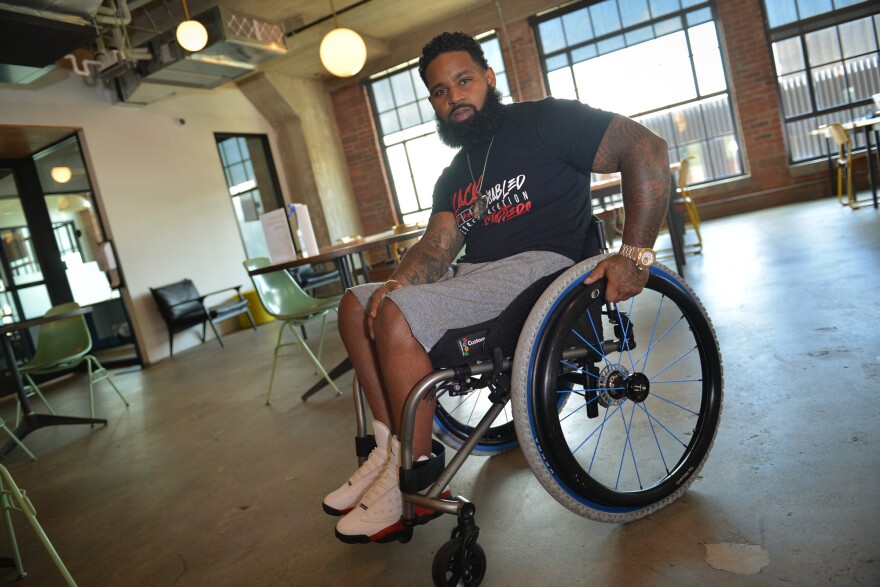When the Netflix series Queer Eye filmed two seasons in Kansas City, Wesley Hamilton shared his story of redemption and transformation. At 24, Hamilton got into a tense situation on the street. In a chaotic blur, he was shot multiple times and suffered a spinal cord injury that left him unable to use his legs for the rest of his life.
Hamilton's journey in the nine years since then has brought him a kind of peace he would have once thought unimaginable, but he calls his immediate post-injury experience "pure hell."
When he heard the story of Jacob Blake who was shot in the back by Kenosha, Wisconsin police and left without the use of his legs, it brought back a wave of powerful memories. Not memories of police brutality, but of waking up in the hospital in massive pain, and of learning — about a week later — that he would never walk again.
Much of Hamilton's frustration, reading the news, comes back to a single word.
"I keep hearing 'paralyzed.' Paralyzed, paralyzed, paralyzed,'" he says, shaking his head. "It's like, do y'all even know what that means?"
Hamilton wants people to understand that Blake is in pain. "I'm saying physically, like, nerve damage is bothering that man every day. Everything has changed. And nobody's focusing on that."
Hamilton says we should talk about a spinal cord injury because that is what Blake has. A spinal cord injury corresponds to a specific vertebra.
Paralyzed, on the other hand, Hamilton says, is vague. It's not medical. And it carries more emotional weight than factual significance.
"It just means stuck," Hamilton says.
He explains that while the rest of the world wrestles with what has already happened to Blake and the implications for policing and racial injustice, "this man has to live."

The Fight Of His Life
Now, Hamilton runs a non-profit doing advocacy for people with disabilities, so he sees examples of people leading fulfilling, active lives with all kinds of injuries, including ones like his and Blake's. But when he woke up in the intensive care unit after being shot, he had no idea what was still possible. It took two years before someone called what he had a spinal cord injury. As a result, he didn't know the nuance of his own condition. He didn't realize he could learn to drive or shower on his own.
"It made me fall into this mindset," he says. "I didn't know how to live this life."
And he says that was doubly the case for him — as it will be for Jacob Blake — because he is a Black man.
"I'm gonna be blunt," he says. "We don't get the same treatment."
The doctors, nurses and therapists Hamilton encountered were mostly white. The images on brochures for various treatments of therapies showed smiling white people recovering. Plus, he'd already spent a lifetime having to defend his humanity before his accident ever happened.
"We're still fighting for rights. We're still fighting for people to see us as people," Hamilton says. And that's why he thinks calling Blake paralyzed doesn't help his cause. "Right now, not only does he look like someone who gets shot by the police, now he's looking like less than."

Hamilton's own daughter, who was two when he was shot, didn't hear him called paralyzed for years. "She just called my wheelchair my Superman chair," he recalls. Hamilton got to explain it to her on his own terms, when he understood it better himself.
Blake has four kids, and Hamilton points out that he probably had little if any say in how they were told about his medical
condition, let alone how they understand it. National discourse has beat him to it.
"Lord, the journey is hard, trying to adapt," Hamilton says. "While you try to accept all of that, your kids are looking at you different?"
"He didn't even get a chance to wake up and say, alright, let's see if this works. Let me try to wiggle my toes," Hamilton says in disbelief. "The world knows he's paralyzed."
And, Hamilton wants the world and Jacob Blake to know there is still a life for him to live.






